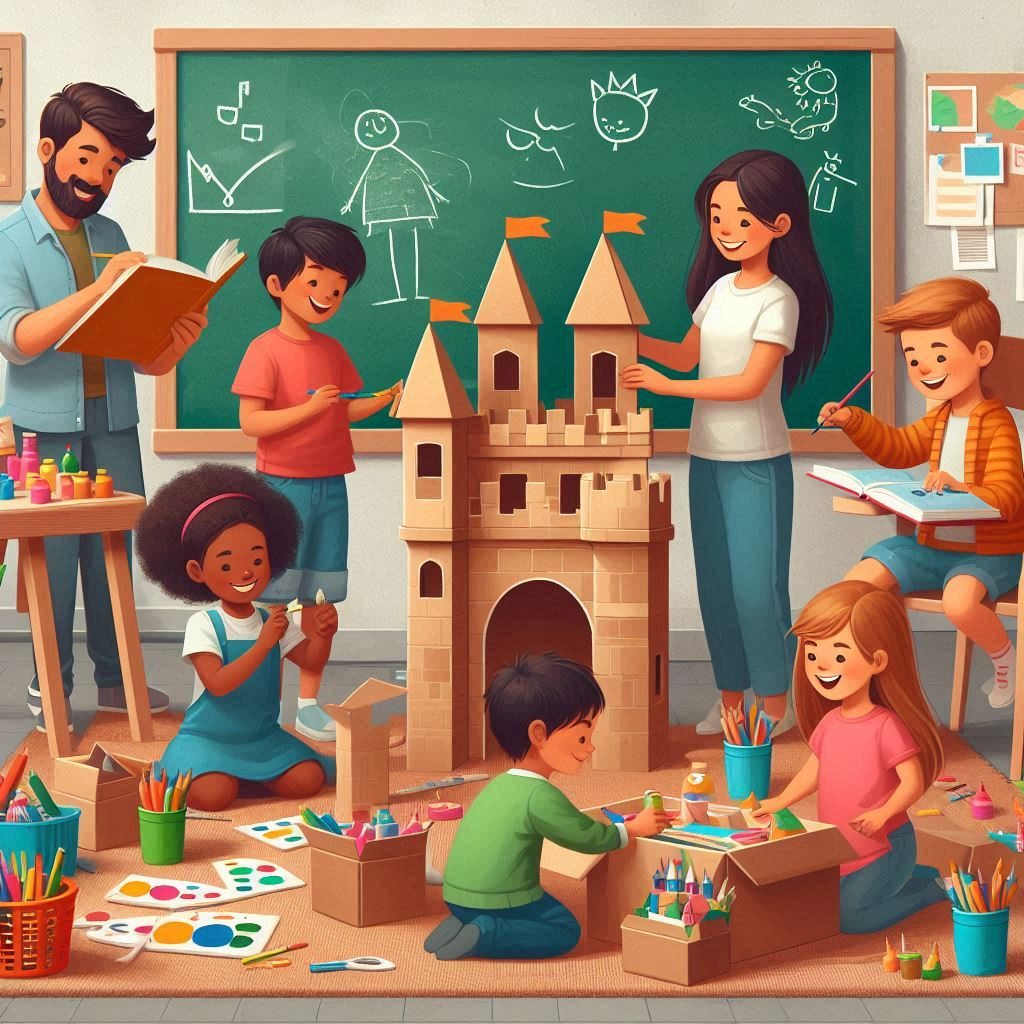Engaging Ideas to Support Every Child’s Educational Journey
FAQs on Supercharge Learning with Fun Activities for Kids
1. What are some fun learning activities to boost a child's development at home?
You can turn your home into a learning playground with simple, fun activities that support your child's growth. These activities often align with early CBSE and NCERT learning goals. Here are a few examples:
- For Maths: Use kitchen jars for counting and sorting beans or pasta. Play a 'shop' game with price tags on toys to practise basic addition and subtraction.
- For English: Create stories together using different toys as characters to build vocabulary and narrative skills. Go on a 'letter hunt' around the house to find objects starting with a specific letter.
- For Science/EVS: Plant a seed in a small pot and observe its growth daily. This teaches patience and the basics of plant life cycles. Create a 'weather chart' to track sunny, rainy, and cloudy days.
2. How can I make learning genuinely enjoyable for my child?
To make learning fun, it's essential to shift the focus from pressure to play. The key is to create a positive learning environment. You can do this by:
- Integrating their interests: If your child loves cars, use toy cars to teach counting, colours, and concepts like 'fast' and 'slow'.
- Using games: Board games, puzzles, and even simple scavenger hunts are excellent for developing critical thinking and problem-solving skills without feeling like a chore.
- Celebrating effort, not just results: Praise their curiosity and persistence. This builds a resilient mindset where they are not afraid to make mistakes.
- Keeping it short and engaging: Young children have shorter attention spans. Aim for short, 15-20 minute bursts of focused, fun activity.
3. Why is it so important to make learning fun for young children?
Making learning fun is crucial because it builds the foundation for a child's entire educational journey. When a child enjoys learning, they develop intrinsic motivation—the desire to learn for the sake of learning, not just for rewards. Fun, activity-based learning enhances memory retention, improves problem-solving abilities, and fosters creativity. It creates a positive emotional connection to education, reducing anxiety and making children more receptive to new concepts throughout their school years.
4. How can everyday household items be used for educational activities?
Many everyday items can be powerful learning tools. This approach is not only cost-effective but also teaches children to be resourceful. For example:
- Cardboard boxes: These can become forts, cars, or puppet theatres, encouraging imaginative play and storytelling.
- Old magazines or newspapers: Use them for cutting and pasting activities to improve fine motor skills, or to create collages based on themes like 'animals' or 'foods'.
- Kitchen supplies: Measuring cups and spoons are perfect for introducing concepts of volume and measurement. Mixing ingredients for a simple recipe is a great hands-on science experiment.
5. How does activity-based learning differ from traditional rote memorisation?
Activity-based learning and rote memorisation are fundamentally different approaches to education. Activity-based learning is a hands-on, interactive process where children learn by doing and exploring. It focuses on understanding the 'why' behind a concept, promoting critical thinking and long-term retention. In contrast, rote memorisation focuses on learning facts through repetition, like memorising multiplication tables without understanding the concept of multiplication. While some memorisation is necessary, activity-based learning ensures a deeper, more meaningful understanding.
6. What are some creative activities to improve my child's English and reading skills?
Improving English skills can be very enjoyable with the right activities that align with early syllabus goals. Try these creative ideas:
- Rhyming Games: Say a word like 'cat' and have your child come up with rhyming words like 'hat', 'bat', and 'mat'. This builds phonological awareness.
- Storytelling with Picture Cards: Create or print out cards with different characters, settings, and objects. Let your child pick a few and build a unique story around them.
- DIY Storybook: Staple a few pages together and have your child draw pictures and dictate a story to you. This makes them feel like a real author and values their ideas.
7. What are some simple, fun ways to introduce basic Maths concepts?
Maths can be made less intimidating by integrating it into fun, daily activities. The goal is to show that Maths is all around us. Some simple ways include:
- Shape Hunt: Go for a walk and find objects that are circles, squares, or triangles. This connects abstract shapes to the real world, a key goal in the NCERT early years curriculum.
- Board Games: Games that involve dice and moving spaces are excellent for teaching one-to-one correspondence and counting skills.
- Building with Blocks: Use blocks to teach concepts like 'taller', 'shorter', counting, patterns, and even simple addition by grouping blocks together.
8. What is the role of a parent's attitude in a child's learning journey?
A parent's attitude is one of the most significant factors in a child's educational success. When a parent shows enthusiasm and curiosity about the world, the child is more likely to adopt the same mindset. Your role is not to be a strict teacher, but a supportive guide. By maintaining a patient and encouraging tone, you create a safe space for your child to ask questions, experiment, and make mistakes without fear. This fosters a growth mindset, where challenges are seen as opportunities to learn rather than as failures.






















